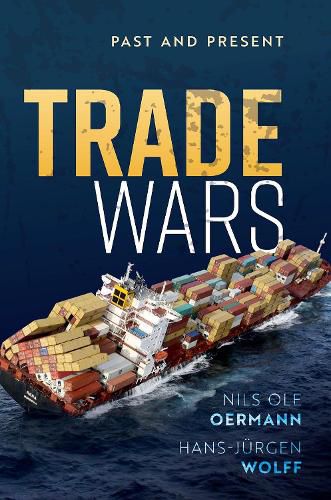Readings Newsletter
Become a Readings Member to make your shopping experience even easier.
Sign in or sign up for free!
You’re not far away from qualifying for FREE standard shipping within Australia
You’ve qualified for FREE standard shipping within Australia
The cart is loading…






This book explores the causes and instruments of 500 years of armed and non-armed international trade conflicts. Nils Ole Oermann and Hans-Jurgen Wolff draw on decades of experience to examine trade wars, economic sanctions, and different types of economic warfare, investigating their history, ethics, economic driving forces, and legality under current rules. They provide a clear and accessible account of the economics of trade, of trade and financial policy since the nineteenth century, and of the effectiveness of sanctions and the ‘winnability’ of trade wars. The book also describes the transformation of economic warfare since 1989, namely in cyberspace and in the world financial system, and shows how China’s rise challenges the Western model of democracy and free market economies. The authors conclude with a plea for improved economic statecraft and an overhaul of the current trading regime.
$9.00 standard shipping within Australia
FREE standard shipping within Australia for orders over $100.00
Express & International shipping calculated at checkout
This book explores the causes and instruments of 500 years of armed and non-armed international trade conflicts. Nils Ole Oermann and Hans-Jurgen Wolff draw on decades of experience to examine trade wars, economic sanctions, and different types of economic warfare, investigating their history, ethics, economic driving forces, and legality under current rules. They provide a clear and accessible account of the economics of trade, of trade and financial policy since the nineteenth century, and of the effectiveness of sanctions and the ‘winnability’ of trade wars. The book also describes the transformation of economic warfare since 1989, namely in cyberspace and in the world financial system, and shows how China’s rise challenges the Western model of democracy and free market economies. The authors conclude with a plea for improved economic statecraft and an overhaul of the current trading regime.